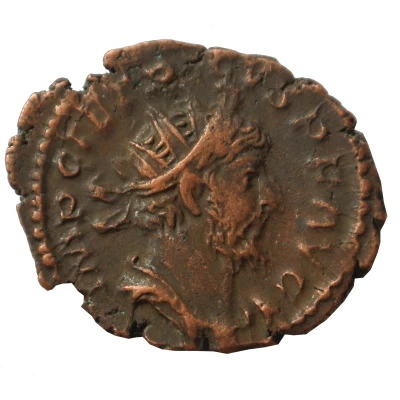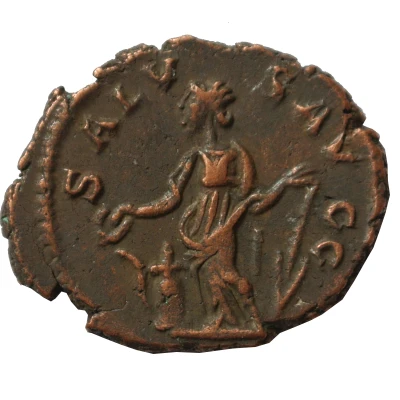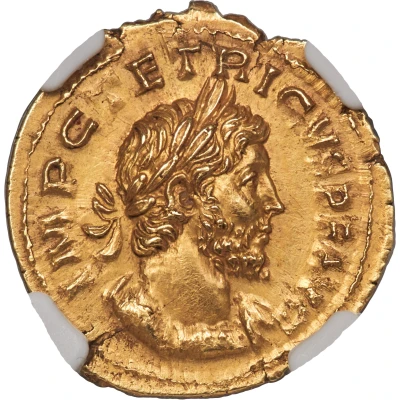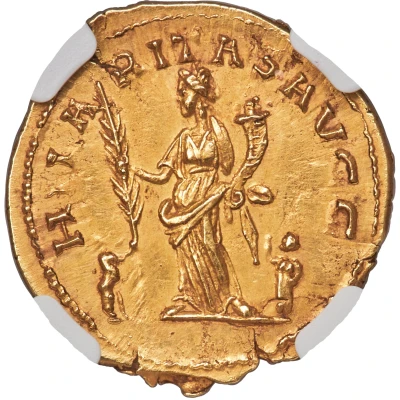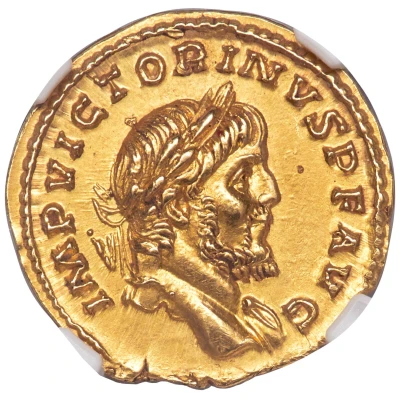
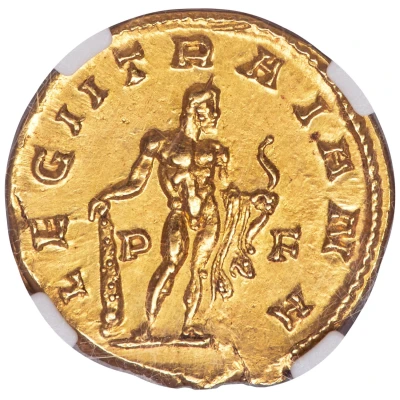

Aureus- Victorinus LEG II TRAIANA P F
271 year| Gold | 4.83 g | 19 mm |
| Issuer | Gallic Empire (Roman splinter states) |
|---|---|
| Emperor | Victorinus (269-271) |
| Type | Standard circulation coin |
| Year | 271 |
| Value | Aureus (25⁄2) |
| Currency | Antoninianus (260-274) |
| Composition | Gold |
| Weight | 4.83 g |
| Diameter | 19 mm |
| Shape | Round (irregular) |
| Technique | Hammered |
| Demonetized | Yes |
| Updated | 2024-10-06 |
| Numista | N#381314 |
|---|---|
| Rarity index | 100% |
Reverse
Hercules, nude, standing facing, head right, right hand on grounded club, bow in left hand, lion skin draped on left arm; P-F across fields.
Script: Latin
Lettering:
LEG II TRAIANA
P-F
Comment
RIC V.II 13 corr. (obverse legend, Sol jugate bust type). Cohen 59 (citing Strasbourg, 600 francs). Schulte 31a, pl. 19.
Uncertain Southern mint.
Two specimens known.
Legio II Traiana was founded by Trajan, circa AD 105, for the campaigns in Dacia. in AD 117, and again from AD 132-136, it was assigned to keep peace in Judaea. It was transferred to Nicopolis in Roman Egypt in AD 125, and shared a camp with Legio XXII Deiotariana. By the time of Marcus Aurelius, Legio II Traiana was the only legion stationed in Roman Egypt. During the reign of Caracalla, it was involved in the campaign against the German tribes and received the cognomen Germanica. The legion's symbol was Hercules, hence the depiction of the demigod on the reverse of this exquisite type.
Interesting fact
One interesting fact about the Aureus-Victorinus coin is that it was issued during a time of great turmoil and political instability in the Roman Empire. The Gallic Empire, which was a breakaway state from the Roman Empire, minted this coin during the reign of Emperor Victorinus, who ruled from 269 to 271 AD. Despite the political upheaval, the coin still bears the image of the Roman Emperor on one side and the goddess Victory on the other, highlighting the ongoing influence of Roman culture and tradition even in the midst of political fragmentation.
